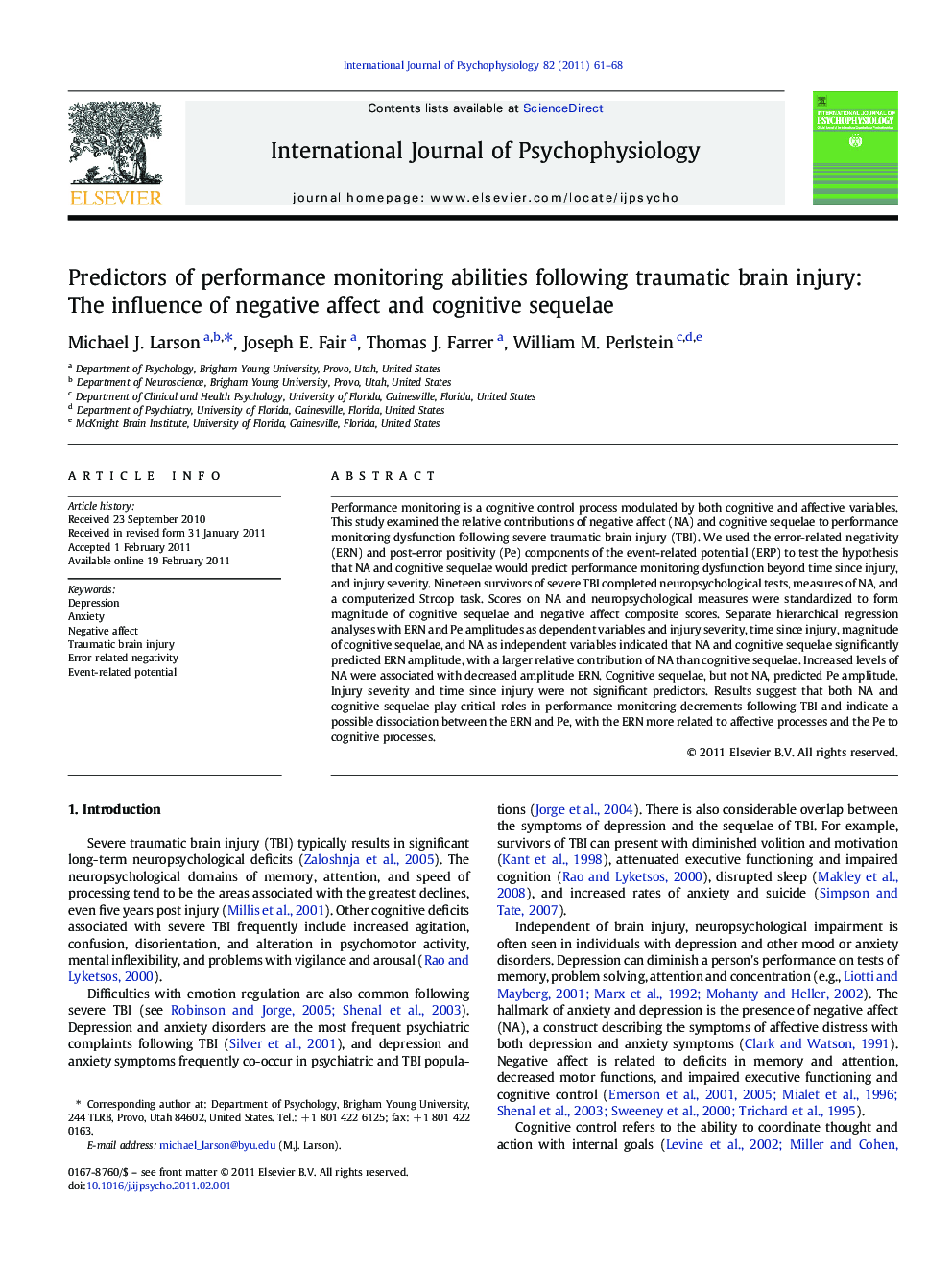| کد مقاله | کد نشریه | سال انتشار | مقاله انگلیسی | نسخه تمام متن |
|---|---|---|---|---|
| 930235 | 1474450 | 2011 | 8 صفحه PDF | دانلود رایگان |

Performance monitoring is a cognitive control process modulated by both cognitive and affective variables. This study examined the relative contributions of negative affect (NA) and cognitive sequelae to performance monitoring dysfunction following severe traumatic brain injury (TBI). We used the error-related negativity (ERN) and post-error positivity (Pe) components of the event-related potential (ERP) to test the hypothesis that NA and cognitive sequelae would predict performance monitoring dysfunction beyond time since injury, and injury severity. Nineteen survivors of severe TBI completed neuropsychological tests, measures of NA, and a computerized Stroop task. Scores on NA and neuropsychological measures were standardized to form magnitude of cognitive sequelae and negative affect composite scores. Separate hierarchical regression analyses with ERN and Pe amplitudes as dependent variables and injury severity, time since injury, magnitude of cognitive sequelae, and NA as independent variables indicated that NA and cognitive sequelae significantly predicted ERN amplitude, with a larger relative contribution of NA than cognitive sequelae. Increased levels of NA were associated with decreased amplitude ERN. Cognitive sequelae, but not NA, predicted Pe amplitude. Injury severity and time since injury were not significant predictors. Results suggest that both NA and cognitive sequelae play critical roles in performance monitoring decrements following TBI and indicate a possible dissociation between the ERN and Pe, with the ERN more related to affective processes and the Pe to cognitive processes.
Research Highlights
► Negative affect predicted ERN amplitude following TBI.
► Cognitive sequelae, but not negative affect, predicted Pe amplitude following TBI.
► Results suggest a possible affective/cognitive dissociation between ERN and Pe.
► Assessment of performance monitoring abilities after TBI should include affect.
Journal: International Journal of Psychophysiology - Volume 82, Issue 1, October 2011, Pages 61–68